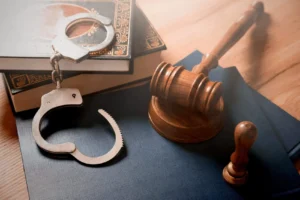How to Fight Traffic Tickets & Save $2000+
Motorists frequently ask, “What strategies can I use when fighting traffic tickets to save thousands in fines and penalties?” Unlike simply paying fines and accepting guilt, contested traffic violations invoke constitutional protections and potential savings exceeding $2,000 through strategic legal defense approaches.
Traffic ticket defense operates within established constitutional frameworks where even minor infractions carry significant due process rights. When receiving a citation, you’re engaging with a legal system that must respect fundamental rights under the Fourth, Fifth, Sixth, and Fourteenth Amendments to the Constitution. Understanding these protections forms the foundation for successful defense strategies that can result in substantial cost savings.
Constitutional Framework of Traffic Enforcement
Fourth Amendment Protections Against Unlawful Stops
The Fourth Amendment requires all traffic stops to be based on reasonable suspicion of violations or criminal activity. Officers cannot conduct arbitrary stops without articulable reasons for believing traffic laws were violated. This constitutional protection creates the first line of defense in traffic cases.
Reasonable suspicion differs significantly from probable cause required for arrests. Officers need only point to specific facts that would lead reasonable persons to believe violations occurred. However, this lower threshold still requires legitimate justification for initiating contact with motorists.
Challenging the initial stop’s constitutionality can result in complete case dismissal through the exclusionary rule. When officers lack reasonable suspicion for stops, resulting evidence—including observations of violations—may be suppressed in court proceedings. This constitutional safeguard protects citizens from government overreach while maintaining legitimate law enforcement authority.
Due Process Requirements in Traffic Proceedings
Procedural due process in traffic cases includes notice of charges, opportunity to be heard, and impartial decision-makers. These protections ensure that even minor violations receive fair treatment under established legal procedures designed to prevent government arbitrariness.
The Supreme Court has recognized that due process is flexible, requiring different protections in different contexts. Traffic court proceedings must balance individual rights with public safety needs while maintaining constitutional standards that protect all citizens from government abuse.
Notice requirements mandate that citations clearly state alleged violations, court dates, and locations. Defective notice can provide grounds for dismissal when failing to meet constitutional or statutory standards. Proper notice ensures defendants understand charges and can prepare adequate defenses.
How Do Traffic Court Defense Strategies Work?
Challenging Officer Observations and Evidence
Police officer testimony forms the prosecution’s primary evidence in most traffic cases. Officers explain their observations and why defendant behavior violated traffic rules. Successfully challenging this testimony requires understanding both legal standards and practical limitations affecting officer accuracy.
Effective cross-examination focuses on officer positioning, visibility conditions, and attention during alleged violations. Questions about where patrol vehicles were positioned when events started can reveal whether officers had clear sight lines. Weather conditions, lighting, traffic density, and other environmental factors may have affected officer observations.
Equipment accuracy challenges provide another defense avenue, particularly in speeding cases. Radar and lidar devices require regular calibration and proper operation to produce reliable results. Questioning maintenance schedules and operator training can expose potential errors in speed detection equipment.
Evidence Gathering and Documentation
Photographic evidence of road conditions, signage visibility, or accident scenes can support defense arguments. Taking pictures as soon as safely possible after receiving citations preserves crucial details that may change over time. Clear images documenting critical details like road conditions and vehicle positioning provide tangible support for defense strategies.
Witness testimony from passengers or other observers can contradict officer observations or provide alternative explanations for driving behavior. Obtaining contact information immediately when witnesses are available ensures their perspectives can be preserved for court proceedings.
GPS data from smartphones or navigation devices can provide objective information about speed and location during alleged violations. This technological evidence can be particularly valuable in speeding cases where accuracy is disputed between driver and officer accounts.
Constitutional Challenge Strategies
Challenging equipment calibration forms a technical defense strategy that can result in case dismissal. Radar guns require calibration every 30-60 days to maintain accuracy standards. Requesting calibration records through Freedom of Information Act requests can reveal maintenance gaps that undermine evidence reliability.
Necessity and emergency defenses argue that violations were justified by circumstances. Examples include speeding to avoid dangerous situations or making emergency lane changes to prevent accidents. These defenses require documented evidence of emergency conditions that made violations necessary for safety.
Mistake of fact defenses involve showing honest and reasonable errors about circumstances. This includes situations where traffic signs were obscured, newly installed, or unclear due to weather conditions. Photographic evidence of sign visibility problems can support these arguments effectively.
What Are the Most Effective Defense Approaches?
Procedural and Technical Challenges
Discovery requests provide access to prosecution evidence including officer notes and equipment maintenance records. This process reveals the state’s strategy while identifying potential weaknesses in their case. Officer notes may contain gaps or inconsistencies that create reasonable doubt about violation accuracy.
Speedy trial rights in traffic cases vary by jurisdiction but can result in dismissal when violated. Understanding time limits for bringing cases to trial creates opportunities for dismissal when prosecution delays exceed statutory requirements. Defendants who haven’t waived speedy trial rights can benefit from these constitutional protections.
Calibration and maintenance challenges require requesting detailed records about equipment accuracy. Speed detection devices must meet precise calibration standards to produce admissible evidence. Gaps in maintenance schedules or improper calibration procedures can undermine the reliability of speed measurements used for citations.
Burden of Proof Considerations
Beyond reasonable doubt standards apply to criminal traffic violations. Prosecutors must prove each element of alleged violations to this highest legal standard. Even minor inconsistencies in evidence can create reasonable doubt that prevents convictions under this stringent requirement.
Preponderance of evidence applies to civil traffic infractions in most jurisdictions. This lower standard requires only that violations were more likely than not to have occurred. Understanding which standard applies to specific violations helps shape appropriate defense strategies for different case types.
The distinction between criminal and civil traffic violations affects both penalties and available defenses. Criminal violations carry potential jail time and require higher evidence standards, while civil infractions typically involve only fines but use lower proof requirements.
How Do Constitutional Rights Apply to Traffic Cases?
Fourth Amendment Search and Seizure Protections
Pretextual stops involve officers using minor traffic violations as pretexts for investigating other suspected criminal activity. While the Supreme Court has generally permitted such stops when legitimate violations occur, the underlying constitutional analysis affects how cases are evaluated and defended.
Traffic stops constitute seizures under Fourth Amendment analysis. Officers must articulate specific reasons for believing violations occurred to justify these seizures. Arbitrary or discriminatory enforcement practices can violate constitutional protections even when technical violations exist.
Exclusionary rule applications prevent prosecutors from using evidence obtained through unconstitutional stops. When initial stops lack reasonable justification, subsequent observations and evidence may be suppressed. This constitutional protection provides powerful defense tools in appropriate cases.
Due Process and Equal Protection Rights
Equal protection challenges address discriminatory enforcement practices that target specific groups. Statistical evidence showing disproportionate citation rates for particular demographics can support constitutional challenges to enforcement patterns, though these require substantial documentation and legal expertise.
Procedural fairness requirements ensure that traffic court proceedings meet constitutional standards. This includes adequate notice, opportunity for hearing, and impartial decision-makers. Violations of these procedural requirements can provide grounds for appeal or case dismissal.
The distinction between criminal and civil proceedings affects which constitutional protections apply. Criminal traffic cases receive full constitutional protections, while civil infractions may have reduced procedural safeguards. Understanding these differences helps shape appropriate defense strategies.
What Financial Benefits Can Defense Strategies Provide?
Direct Cost Savings Through Successful Defense
Fine avoidance through successful defense can save hundreds or thousands of dollars depending on violation severity. Speeding fines range from $50 to over $500 in many states, while more serious violations carry even higher penalties. Successful defense eliminates these direct costs entirely.
Point reduction prevents insurance premium increases that often exceed fine amounts. Insurance companies typically raise rates for three to five years following traffic convictions. These premium increases can total thousands of dollars over time, making successful defense financially beneficial even when legal fees are considered.
License preservation prevents loss of driving privileges that create indirect costs. License suspensions require alternative transportation arrangements, missed work opportunities, and reinstatement fees. Preserving driving privileges through successful defense avoids these cascading financial consequences.
Long-Term Financial Impact
Insurance premium protection provides the largest long-term financial benefit of successful traffic defense. Premium increases from traffic convictions typically last three to five years and can add hundreds of dollars annually to insurance costs. Avoiding these increases often justifies defense expenses many times over.
Employment protection benefits individuals whose jobs require clean driving records. Commercial drivers, delivery personnel, and others whose employment depends on driving privileges face job loss risks from traffic convictions. Successful defense protects both immediate employment and future career opportunities.
Professional license protection helps individuals in regulated professions avoid disciplinary actions triggered by traffic convictions. Many professional licensing boards consider traffic convictions in disciplinary proceedings, making successful defense valuable for maintaining professional credentials and earning capacity.
How Should Drivers Approach Traffic Defense Strategy?
Initial Assessment and Evidence Gathering
Immediate documentation following citation issuance preserves crucial evidence for defense preparation. Photographing scene conditions, obtaining witness information, and documenting relevant circumstances creates the foundation for effective defense strategies.
Citation analysis identifies potential procedural errors or constitutional violations. Reviewing citation accuracy, proper completion, and legal sufficiency can reveal technical defenses that result in dismissal without contested hearings.
Legal research into applicable statutes and case law helps identify available defenses and procedural requirements. Understanding specific violation elements and available challenges guides strategic decision-making about whether to contest citations or accept responsibility.
Professional Legal Assistance
Attorney consultation provides expert analysis of case strength and available defense options. Traffic attorneys understand local court procedures, judicial preferences, and effective defense strategies that improve success probability while managing costs effectively.
Cost-benefit analysis compares legal fees against potential savings from successful defense. When considering fine amounts, insurance impacts, and other consequences, professional legal representation often provides positive financial returns through successful defense outcomes.
Specialized expertise in traffic law provides advantages that general practitioners may lack. Traffic attorneys understand equipment technical aspects, calibration requirements, and procedural nuances that create successful defense opportunities for trained professionals.
What Are Common Defense Challenges and Solutions?
Evidentiary and Procedural Obstacles
Officer credibility often presents the primary challenge in traffic cases since officers receive judicial deference as trained law enforcement professionals. Overcoming this advantage requires systematic preparation, detailed evidence gathering, and strategic presentation of alternative explanations for events.
Technical evidence complexity in equipment-based violations requires specialized knowledge to challenge effectively. Understanding radar, lidar, and camera system operation helps identify potential accuracy issues that create reasonable doubt about violation occurrence.
Procedural requirements vary significantly between jurisdictions and violation types. Learning specific court rules, filing deadlines, and hearing procedures ensures that available defenses aren’t waived through procedural errors or missed opportunities.
Strategic Considerations
Plea negotiation opportunities may provide favorable resolution without trial risks. Prosecutors often agree to reduced charges or alternative dispositions that minimize long-term consequences while avoiding trial uncertainty for both parties.
Trial preparation requirements involve substantial time investment and attention to detail. Successful trial defense requires systematic evidence organization, witness preparation, and strategic planning that many defendants underestimate when choosing self-representation.
Appeal possibilities provide backup options when initial proceedings are unsuccessful. Understanding appellate procedures and deadlines preserves options for challenging adverse decisions through higher court review processes.
Conclusion: Protecting Rights Through Constitutional Principles
Traffic enforcement reflects ongoing tension between public safety needs and individual constitutional rights. Understanding available defense options when fighting traffic tickets empowers drivers to make informed decisions about responding to government allegations while protecting long-term financial interests.
Constitutional protections in traffic court serve as essential safeguards against government overreach, ensuring fair treatment under established legal procedures. These protections reflect founding principles of limited government power while providing mechanisms for legitimate law enforcement within constitutional boundaries.
The decision to contest traffic citations involves careful consideration of case strength, potential consequences, and available resources. Citizens who understand their rights and obligations within this system contribute to preserving constitutional principles while maintaining rule of law protections for all Americans.
Traffic court proceedings represent democracy in action, where individual citizens can challenge government accusations through established judicial procedures. This system embodies constitutional principles of limited government, individual responsibility, and respect for rights that have served our nation since its founding.
The effectiveness of traffic law enforcement depends on public confidence in fair and constitutional procedures that balance safety needs with individual rights. Citizens who exercise constitutional prerogatives through informed participation in traffic court proceedings strengthen this system while ensuring government power remains properly limited and accountable.
As traffic enforcement evolves through technological advances and changing social conditions, fundamental constitutional principles governing these proceedings remain constant. Understanding and exercising rights when facing traffic citations helps preserve essential protections for future generations while ensuring government power serves legitimate public purposes within constitutional limits.
The potential for saving over $2,000 through strategic defense approaches makes understanding these rights both practically and financially beneficial. Beyond immediate cost savings, successful traffic defense protects driving privileges, employment opportunities, and insurance rates that affect long-term financial stability and personal freedom.
Traffic ticket defense requires balancing constitutional knowledge with practical strategy to achieve optimal outcomes. Citizens equipped with this understanding can navigate the legal system effectively while preserving fundamental rights that protect individual liberty and promote government accountability under constitutional law.
- How to Plead Not Guilty to a Traffic Ticket – Attorneys.Media
- Due Process Rights Glossary – Attorneys.Media
- Cross-Examining the Police Officer in Traffic Court – Justia
- Discovery in Traffic Ticket Cases – Justia
- How to Fight a Speeding Ticket – The Shelton Firm
- How to Fight a Traffic Ticket in Hawaii – HawaiiCourtRecords.us
- Moving or Equipment Violations – Hawaii State Judiciary
- Presenting Evidence to Challenge a Traffic Ticket – NY Traffic Lawyer
- Five Strategies for Fighting a Traffic Ticket – Anthem EAP Legal Support
- How to Successfully Contest a Speeding Ticket – Pisani Law




















